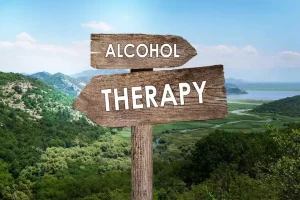
Alcohol addiction treatment teaches you more about the nature of your condition and provides you with the tools you need for long-term recovery. During this stage, your condition may become evident to friends and family, although some people can become highly adept at hiding problem drinking. One of the main issues with this disease is how easy it becomes to lie to yourself as well. If you’re in this phase, you’ll often downplay the amount you drink and find ways of explaining away the behavior. You may start to experience consequences at work or school due to your habit and find yourself regularly hungover and craving more alcohol.
- Because of the severity of the disease, medically monitored alcohol detox is a necessity.
- The goal of outpatient treatment is to provide therapy, education, and support in a flexible environment.
- Find support for yourself and other family members in a rehab family program.
- The signs and symptoms of ALD can vary significantly depending on the severity of liver damage.
- The late stage of alcoholism represents a severe and advanced form of alcohol use disorder.
Stages of Alcoholism: Early, Chronic, and End Stage
- Effective addiction treatment providers will have addiction counselors, but they should also have mental health services as many people with alcoholism have co-occurring mental health conditions.
- Another 855,000 Americans ages 12 to 17 years old have alcohol use disorders.
- Alcoholism is a treatable disease, with many treatment programs and approaches available to support alcoholics who have decided to get help.
- Scaling these risky BAC thresholds is not as difficult as some might think.
- Healthcare providers diagnose the condition by doing a physical examination to look for symptoms of conditions that alcohol use disorder may cause.
- Late-stage alcoholics can get better if they seek treatment, and some of their health problems can even be reversed if caught early enough.
Doctors and other health professionals are encouraged to talk to their patients about drinking at every appointment.[11] You’re not required to wait for your doctor to bring it up. You can make an appointment to talk specifically about alcohol and your need to quit. Your doctor can help you find a treatment program that’s right for you.
FAQ’s About Alcohol Detox and Withdrawal

Combining therapy with support groups can greatly improve your odds of success. Therapy combined with an AUD program tends to lead to a high recovery success rate. The growth stage is all about improving and moving forward. During this period, you can expect to develop new skills you may have never learned that made you more susceptible to AUD in the first place. If you’re ready to make a positive change, here’s what you may want to know about the recovery process.
Treatment Options/Resources for Alcohol Misuse & Addiction
- You’ll soon start receiving the latest Mayo Clinic health information you requested in your inbox.
- If you’re concerned about someone who drinks too much, ask a professional experienced in alcohol treatment for advice on how to approach that person.
- The field of alcohol science progressed further after Prohibition was repealed in the 1930s.
- Studies show most people with this condition recover, meaning they reduce how much they drink, or stop drinking altogether.
- Take our free, 5-minute alcohol misuse self-assessment below if you think you or someone you love might be struggling with an alcohol use disorder (AUD).
Early-stage alcoholism is easier to notice than the pre-alcoholism stage. Your friend or family member in early-stage alcoholism will regularly binge drink or drink to the point of blacking out. They’ll likely joke about their blackouts or mention they won’t drink that much again.
How is alcohol-related liver disease treated?

What starts as casual drinking advances into dependence and addiction over time. The majority of people who struggle with alcohol addiction, or alcohol use disorder (AUD), took months or years to reach that point. Alcoholism is a treatable disease, with many treatment programs and approaches available to support alcoholics who have decided to get help. Getting help before your problem drinking progresses to severe alcohol use disorder can save your life. With so many effects on the body, the usual first step in treating alcoholism is detox—or getting alcohol out of your system. Depending on the severity of the alcohol use disorder, this stage can be mildly annoying or severe.

Because denial is common, you may feel like you don’t have a problem with drinking. You might not recognize how much you drink or how many problems in your life are related to alcohol use. Listen to relatives, friends or co-workers when they ask you to examine your drinking habits or to seek help.

End-Stage Alcoholism: Signs, Symptoms, Management
Screening and assessment tools do not allow physicians to predict with confidence who will or will not experience life-threatening symptoms. It also includes the journey of alcohol addiction and into recovery. He outlines the ways people can recover from their 5 stages of alcoholism problematic drinking behaviors. And you can shift from the downward spiral of alcoholism and toward the upward trajectory at any point. The stages of alcoholism are a helpful tool to help determine the progression of alcoholism but they are by no means a rule.
- People used to refer to alcohol use disorder as alcoholism, and the people with it as alcoholics.
- Abstaining from drinking alcohol is the first step in treating ALD.
- Drinking can also lead to injuries and death by accidents, including motor vehicle crashes and falls, and can result in social and legal problems.
- They can also determine whether the spleen is enlarged, which may be a sign of advanced liver disease.
- The growth stage is all about improving and moving forward.
- Screening and assessment tools do not allow physicians to predict with confidence who will or will not experience life-threatening symptoms.
When a person drinks alcohol, the alcohol passes into stomach and intestines where it is absorbed into the bloodstream. In turn, the alcohol-containing blood is transported to the liver. Healthcare providers diagnose the condition by doing a physical examination to look for symptoms of conditions that alcohol use disorder may cause. Fatty liver disease can often be reversed by stopping drinking alcohol. After two to three weeks of abstaining from alcohol, fatty deposits disappear and liver biopsies appear normal.

Unsure where to start? Take Our Substance Abuse Self-Assessment
This disease is progressive, and your health will eventually bear the brunt. People with severe or moderate alcohol use disorder who suddenly stop drinking could https://ecosoberhouse.com/ develop delirium tremens (DT). It can be life-threatening, causing serious medical issues like seizures and hallucinations that require immediate medical care.
Leave a Reply